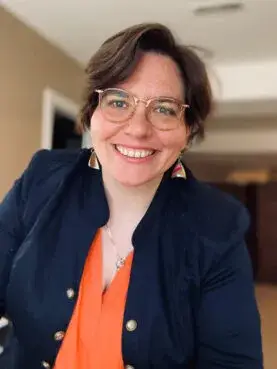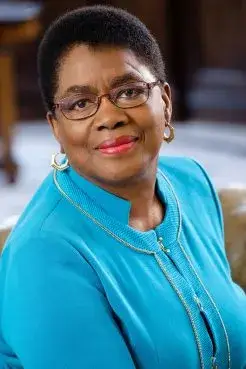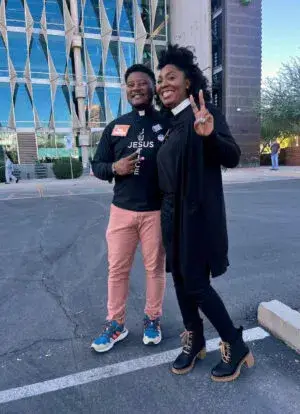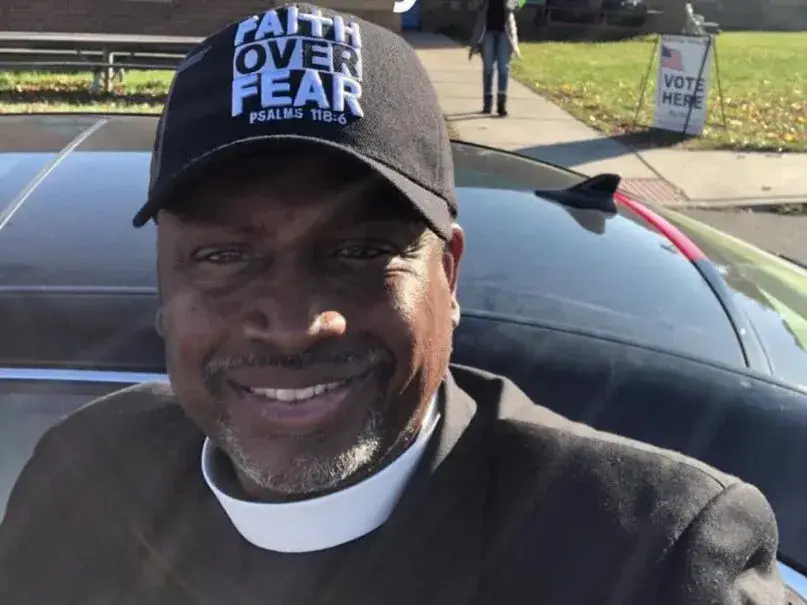Overview of Voter Protection Efforts
As the upcoming presidential election approaches, various organizations are gearing up to ensure a smooth and peaceful voting process. Faiths United to Save Democracy, a nonpartisan group with origins in Black church voter mobilization, is leading efforts to train volunteers for maintaining calm at polling places. The initiative aims to involve clergy, secular groups, and individuals of diverse faith backgrounds to prevent and manage conflicts during the election period.
Training Sessions for Poll Chaplains and Peacekeepers
On July 15, 2024, an online training session was held for volunteers, including Catholic nuns, rabbis, and community leaders. This was the first of seven planned “poll chaplain/peacekeeper” sessions designed to prepare volunteers for their roles. The training covered a range of scenarios, from handling aggressive behavior to dealing with intimidating situations, equipping participants with tools to foster a peaceful voting environment.
Sister Eilis McCulloh of Network Lobby for Catholic Social Justice expressed her appreciation for the interfaith nature of the training, emphasizing the importance of collective action. More than 80 participants attended the 90-minute session, which included practical exercises and strategies for building trust and managing conflict.

Emphasis on Nonviolence and Support
The Rev. Barbara Williams-Skinner, coordinator of the Faiths United to Save Democracy campaign, highlighted the group’s commitment to denouncing political violence and providing a calming presence at polling places. The session included prayers for political leaders and a focus on the critical role of poll chaplains in maintaining order during early voting and on Election Day.

Experiences from Past Elections

Past experiences from poll chaplains reveal the challenges and successes of their roles. The Rev. Steve Bland Jr. recounted an incident in Michigan where a white clergywoman intervened to address a situation involving a suspicious vehicle near a polling place. Similarly, the Rev. Dontà McGilvery from Arizona described handling a confrontation with a voter who challenged his Christian values based on political alignment.

Bridget Moix of the Friends Committee on National Legislation shared her experience in Ohio, where her presence helped a young voter feel safe and welcomed despite initial fears of violence. These experiences underscore the importance of having a reassuring and supportive presence at polling stations.
Support from Other Organizations
Other organizations are also working to support voter protection. Interfaith America and Project Democracy have created the “Faith in Elections Playbook,” which includes guidelines for supporting voters, such as providing food and water. Faith in Public Life has called for leaders to promote peace and counter political violence in their statements.
Ongoing Commitment Beyond Election Day
The role of poll chaplains and peacekeepers extends beyond Election Day, potentially involving activities such as prayer vigils, nonviolent protests, and monitoring vote counts. Arlene Holt Baker of the AFL-CIO emphasized that volunteers are committing to ongoing support throughout the election period and beyond.
FAQ
1. What is the purpose of the voter protection training?
The training aims to prepare volunteers to manage and prevent conflicts at polling places, ensuring a peaceful voting environment during the upcoming election.
2. Who is involved in the training sessions?
The training includes clergy, secular group members, and individuals of various faith backgrounds, including Catholic nuns, rabbis, and community leaders.
3. What scenarios are covered in the training?
Participants are trained to handle various scenarios, such as aggressive behavior, intimidation, and building trust with voters.
4. What are some examples of past experiences from poll chaplains?
Past experiences include handling suspicious vehicles near polling places and addressing confrontations based on political and religious differences.
5. How are other organizations supporting voter protection?
Organizations like Interfaith America and Project Democracy provide guidelines for voter support, while Faith in Public Life calls for leaders to promote peace and counter political violence.
6. What is the long-term commitment of poll chaplains?
Poll chaplains are expected to support the voting process beyond Election Day, including activities such as prayer vigils and monitoring vote counts.


